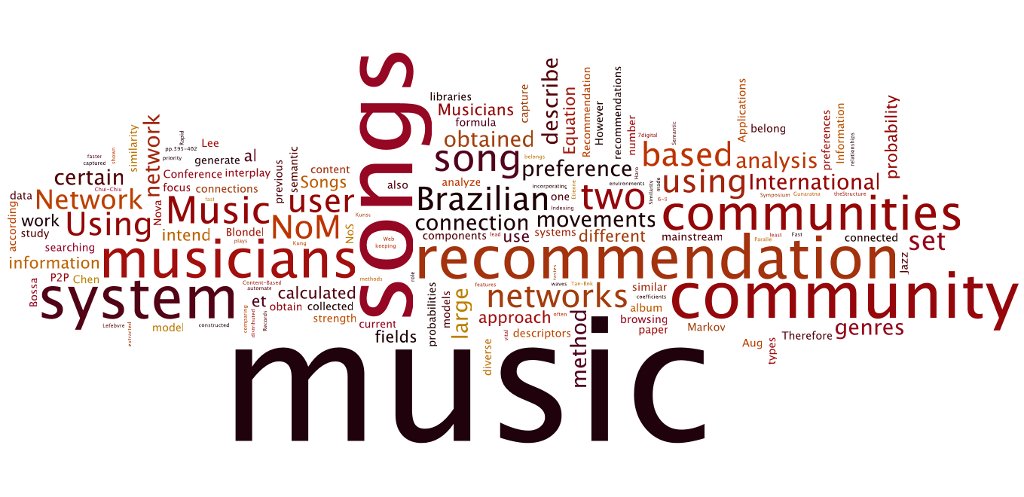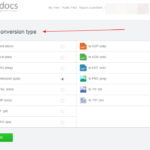How Do Music Recommendation Services Work
We love listening to great music. Great music keeps our nerves calm, our brain fully awaken and stimulates our soul. No matter how far we’ve come in the journey of evolution we still crave for great music that resonates with our hearts, and will for sure even hundred years from now on. With the development of the technology the way we listen to music, the way we discover music and everything about music has revolutionized, and as a result we have been exposed to millions and millions of tracks by millions of artists. Finding the songs that match our personal tastes is like finding a needle in a hey sack if there wasn’t any mechanism to filter out results from this gigantic database of music. And given our extremely busy lifestyles we’d sure give up listening to music if there wasn’t a quickly accessible way to filter the tracks we love. But thankfully technology has come up with a solution of its own. Music recommendation engines are the latest search engines that automatically deliver music that we love, music that best suits our tastes. Following is a concise discussion about music recommendation engines and how they work.

Music Recommendation Process
Music recommendation engines utilize complex algorithms designed with mathematical formulas to recommend music to the listeners. Typically these algorithms make suggestions based on artist/genre similarity, users’ activity on the recommendation service such as frequently listened songs, skipped tracks, ratings given to a particular song etc. Services like Last.fm and Pandora make use of surveyed information, users’ activity logs and acoustic analysis to suggest music while services offering music purchases like Amazon and iTunes make use of the purchase history details, browsing history details to make suggestions. Acoustic analysis is a way of finding music by scanning a user uploaded audio segment, such as part of a song recorded through a cell phone. The audio track is segmented into tiny chunks, and the pitch, loudness and timbre are carefully analyzed by a software engine to find songs similar to the uploaded audio. This process is used in popular apps like SoundHound and Shazam.
Popular Music Recommendation Services

Pandora
Pandora is a popular music recommendation service which lets users discover new music and stream tracks. Options to rate songs, skip tracks, bookmark them and purchase them via iTunes or Amazon have been provided. Currently Pandora has over 150 million subscribers, both free and paid and maintains a library of millions of titles from hundreds of thousands of artists. Pandora serves on all major platforms including iOS, Android, Windows Mobile and BlackBerry via dedicated apps.
Grooveshark
Grooveshark is another popular music recommendation engine and a music streaming service with over 35 million users worldwide. This recommendation platform allows users to search music by specifying artists, albums, friend’s suggestions etc. Users can also share their playlists with friends via social networks including Facebook and Twitter, listen to radio stations, skip songs they don’t find interesting and discover more music via the Grooveshark community.
Last.fm
Last.fm is one of the most popular music recommendation services functioning today. The recommendation process is based on what they refer to as scrobbling. It is a way of sending data about users’ activities such as most frequently played titles, favorite songs recommended by friends, time spent on each artist’s albums etc to the Last.fm servers. This is utilized to recommend music for individual listeners. Most of the popular online music streaming services like Spotify and Rdio integrate directly with Last.fm to provide users with rich content based on their interests. Last.fm can also keep track on titles played on your regular music player in the computer via a plug-in.
Advantages of Music Recommendation Services
Benefits for Listeners
Imagine you hearing a beautiful song that resonates with the deepest rhythm in your heart all of a sudden. You have never heard that song before but finally managed to find the artist’s or band’s name, and you are now eager to listen to that song once again and know more about the artist. You are interested in exploring more works by him and also about other artists performing in the same genre. Thanks to the dedicated music recommendation and discovery engines you are just few clicks away from knowing them all, and discovering more amazing music. In a world bound by social networks you can also discover songs your friends’ like, and recommend them your personal favorites. Most of the music recommendation engines also provide you the ability to stream tracks, listen to radio stations etc. with a subscription.
Benefits for Musicians
Today hundreds and thousands of individual artists and bands struggle to grab an audience to spread the word about their music. It is in fact a fierce competition as each one of them are trying as much hard as the other to get their music heard. Music recommendation engines provide a great platform for the artists to spread the word about their music to a massive internet audience. For example news on artists new releases, concerts are automatically delivered to the listeners subscribed to that artist’s channel. And since the recommendation engine recommends songs based on genre, chances of artists’ music being discovered by a totally new listener are higher. And if a listener really loved some artist’s music there is a chance of listener recommending the track to the friends via social networks like Facebook, twitter and StumbleUpon which exposes the artist’s work to a totally new audience.
Conclusion
Music recommendation engines are the beginning of a new era in marketing music. The intelligent recommendation engines are already used by popular online market places including Amazon, eBay etc. which analyzes your browsing history to recommend products for you. However recommending music takes a lot more effort and complex algorithms as it involves analyzing millions of titles even in the same genre. Algorithms have been tweaked over the time to provide users with the best possible results; however the systems are not yet even close to perfection. For instance most recommendation engines still tend to discover songs by very popular artists rather than by new ones when suggesting music. Perfecting these algorithms will take time, but it would simply worth the effort as people truly love listening to great music.
About the author
Dmitri Blackthorn is a real music addict and technology expert. His favorite music services are Last.fm and Spotify. Visit Dmitri’s latest projects – free music converter and free DVD burning software.










